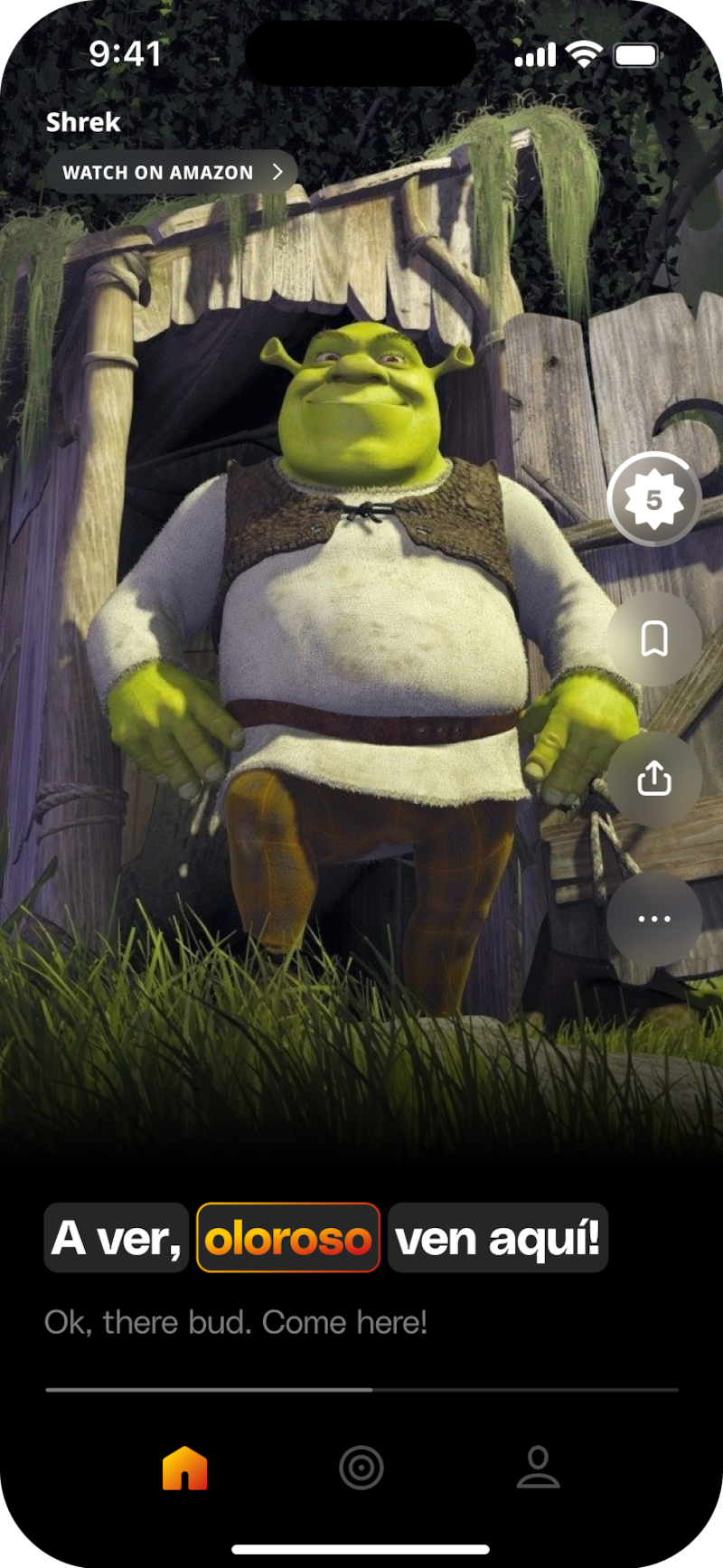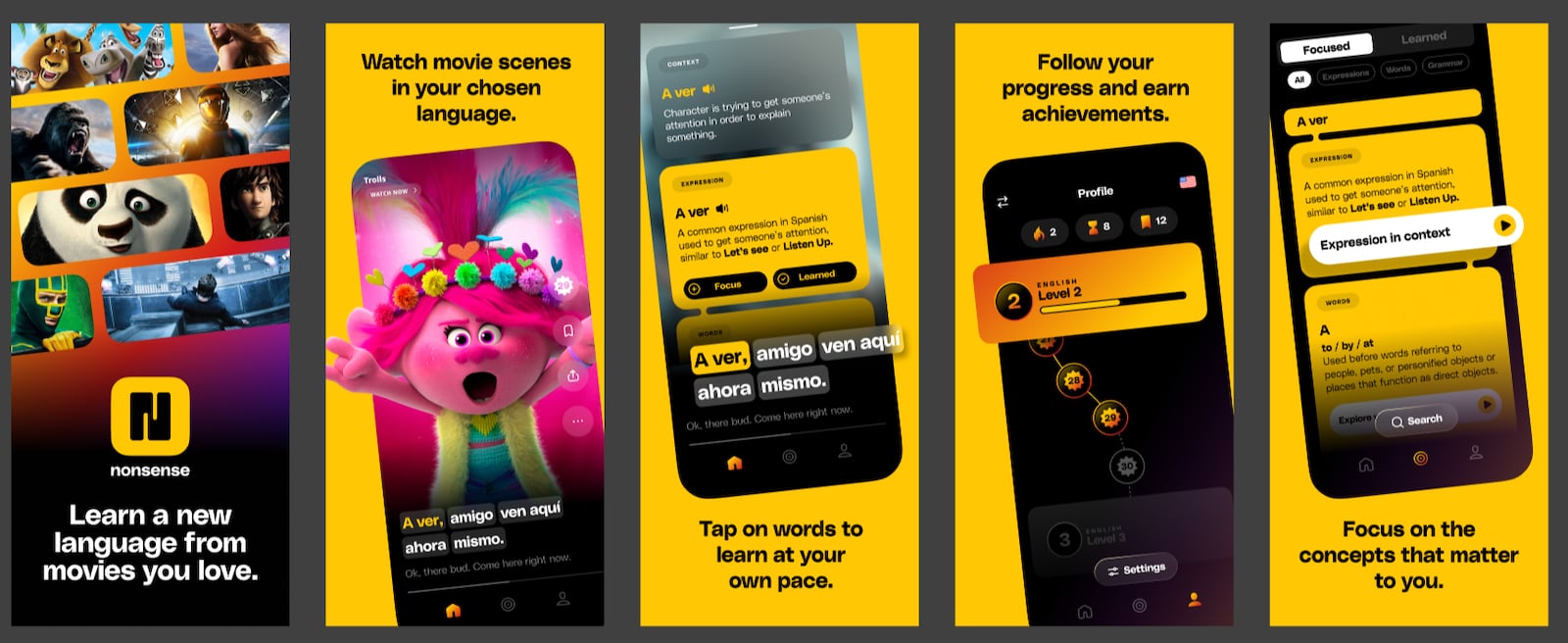This story appears in the July issue of Utah Business. Subscribe.
Technology reshapes how knowledge is delivered, accessed and assimilated. Utah’s education technology sector — commonly referred to as edtech — is presenting unparalleled offerings set to transform the way we learn and consume information.
Nonsense, an app launched earlier this year, allows users to learn new languages by watching movies. Users watch movie clips that play alongside interactive subtitles and quizzes in foreign languages. While watching the videos, users can bookmark words and grammar. Simultaneously, AI synthesizes information based on user performance to ensure that they are receiving the correct level of clips containing the right vocabulary and grammar for an experience that is optimized for both engagement and learning.
“Using movies to help you learn languages … is more enjoyable and more effective than other ways you try to learn a language,” claims Tyler Slater, co-founder and CEO of Nonsense. “Most people today try to learn a language by just memorizing words and grammar and putting the pieces together to try to make a sentence. But it’s really the opposite: You have to learn the full idea first, then break it apart.”
“I’m gonna make him [a language learning] offer he can’t refuse.”
Slater’s understanding of how to learn languages has deep roots in how he was raised. In high school, his parents adopted three orphans of AIDS from Mozambique. While his parents and sisters spoke enough Spanish and Portuguese to communicate with the newly adopted family members, Slater found himself running into a language barrier. As Slater spent time with his new siblings, he noticed that one of his adopted brothers learned English much more quickly than the others for one simple reason: He watched the most TV. This observation stayed with Slater for years and ultimately inspired the founding of Nonsense.

“When you use something familiar, it’s much easier to learn a language,” Slater explains. “We invented stories as a way to teach each other. Our ancestors used stories to teach us right versus wrong and protect children from the elements. What we are about [at Nonsense] is reuniting concepts of storytelling and learning. It’s about helping people experience personal growth in their lives in a convenient and entertaining way.”
Slater’s thesis was corroborated by his co-founder, Martin Bekerman, who is originally from Argentina. To escape the challenging circumstances of his childhood environment, Bekerman binged TV and movies, learning English in the process which led to a job at Netflix.
After hearing Bekerman’s story and reflecting on his childhood experiences, Slater knew something needed to be created to accelerate the language learning process using TV and movies.
“The reality is … education in general is in a weird spot,” Slater says. “The iPad generation really is different, [and] there are so many problems. I’m an optimist. … My goal for our company is to become the best edtech on the planet.”
Nonsense plans to launch in Asia within the next few months, allowing time to test and scale the app before releasing it to U.S. markets. “We want to make sure we have the app … [at] full momentum before going live in our backyard,” Slater says.
“Here’s looking at you, [Nonsense].”
Today, only 1 percent of Americans are fluent in a foreign language they studied in a classroom, showing that there is a massive opportunity for a new learning model to be adopted and used. Additionally, there is significant research confirming the pedagogical benefits of using movies to learn a second language, including an increase in learners’ motivation, a decrease in anxiety and more effective vocabulary acquisition. Additionally, exposure to authentic conversation in a memorable context — while watching a film, for example — has unmatched effects when it comes to grasping a new language.
To date, Nonsense has closed deals for movies from NBCUniversal and Lionsgate and is in the process of creating an efficacy study. So far, however, at least one user is seeing great success: Slater says Harvard University student and Nonsense intern John Harrington helped develop the app’s Russian language curriculum, and after his Russian classes ended at Harvard, he decided to use the app to learn French. After just a few months, Harrington was able to skip over four semesters of French classes, saving him $27,016 in tuition and 605 hours of time.

